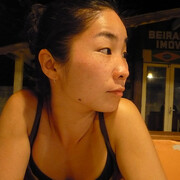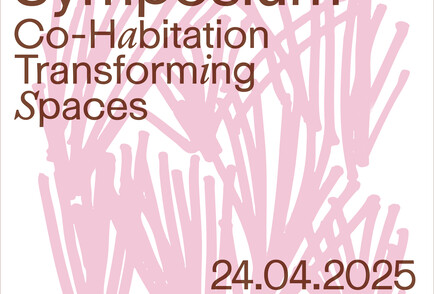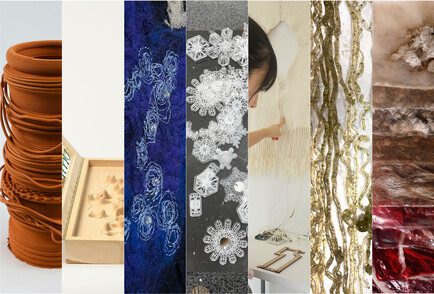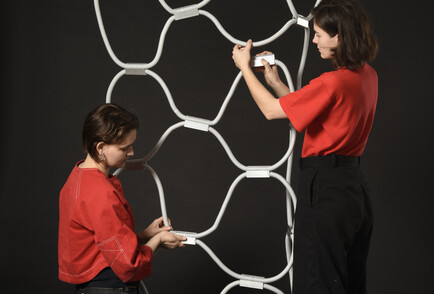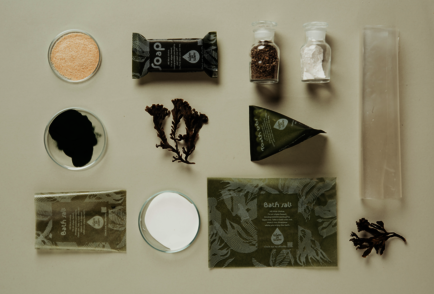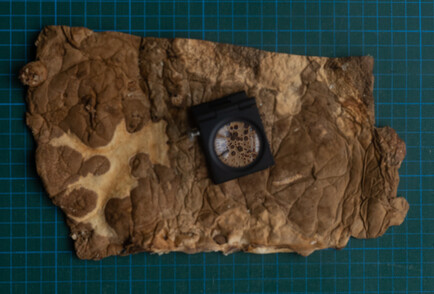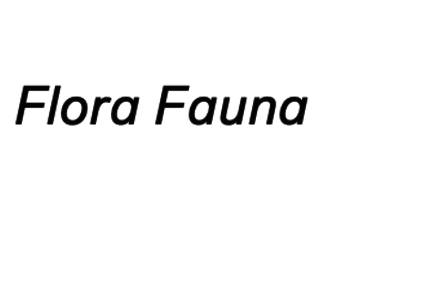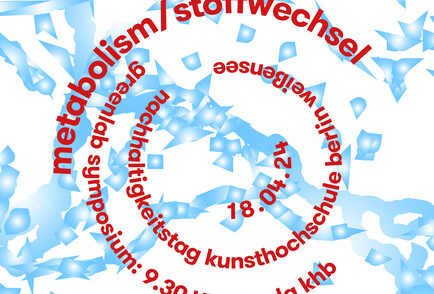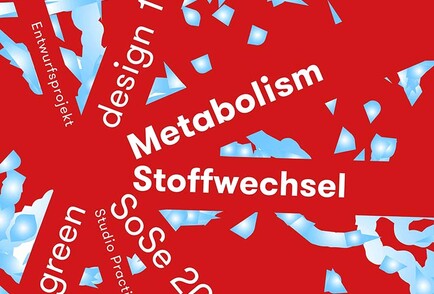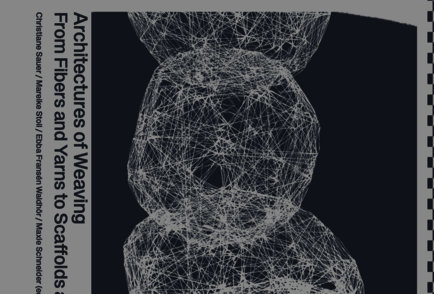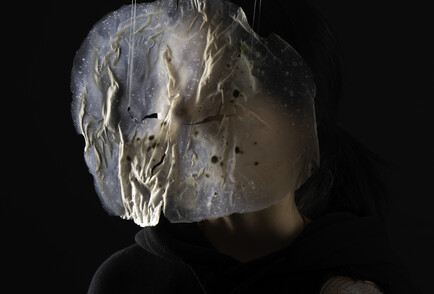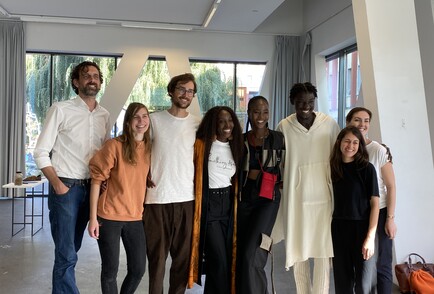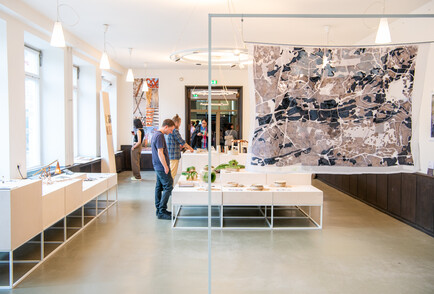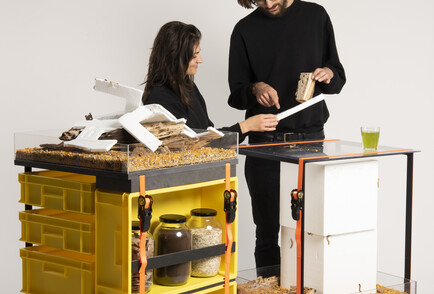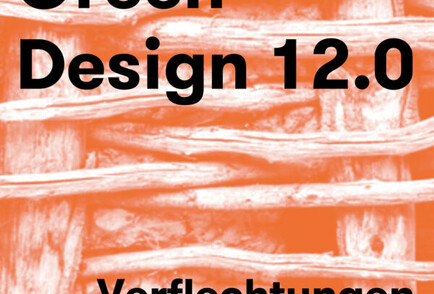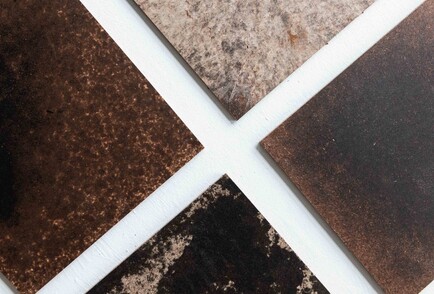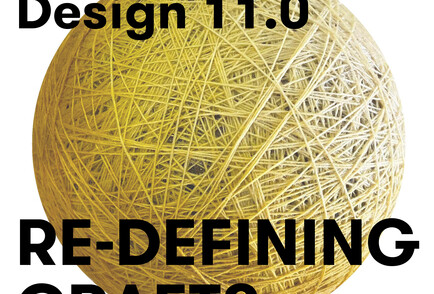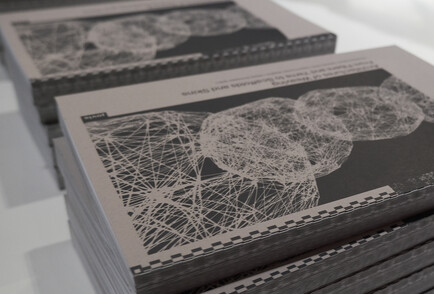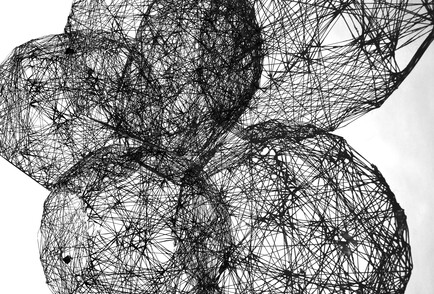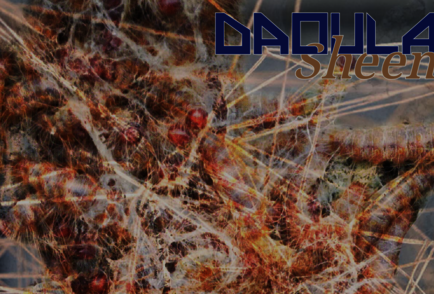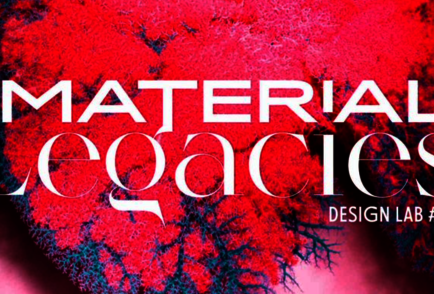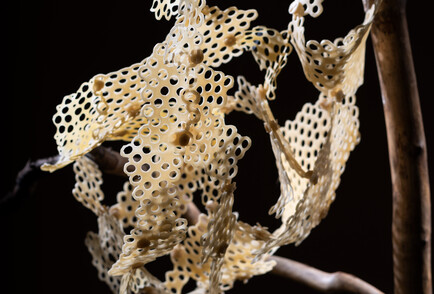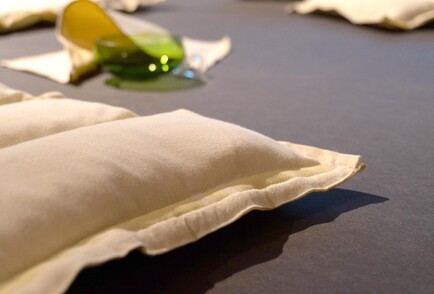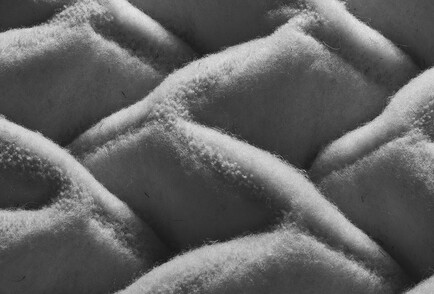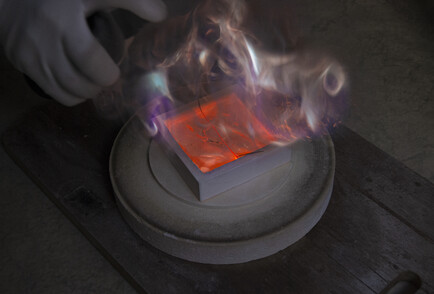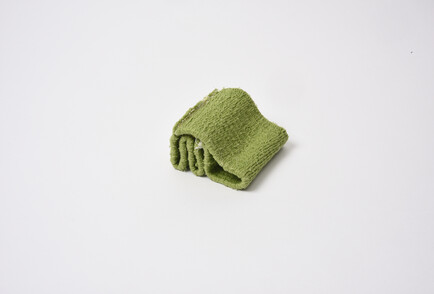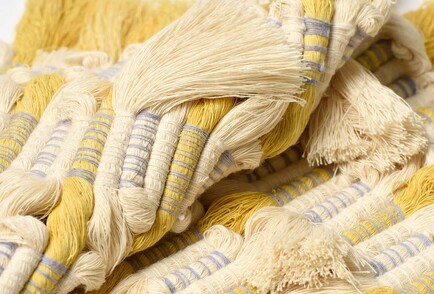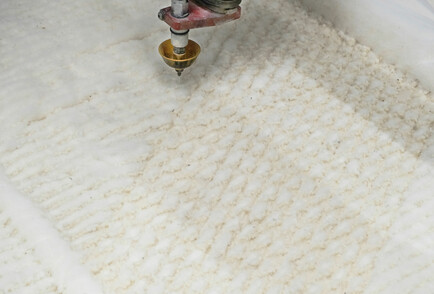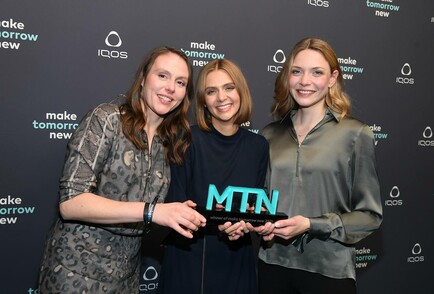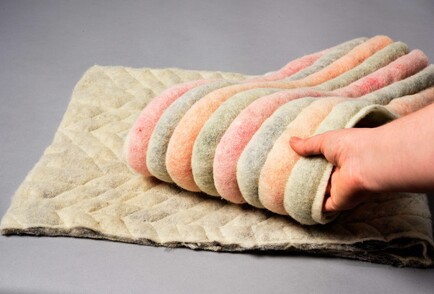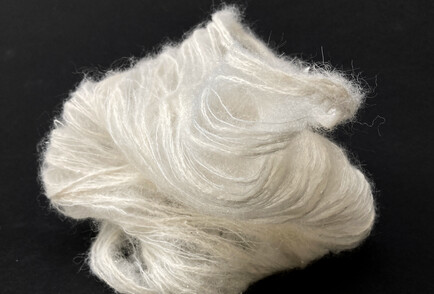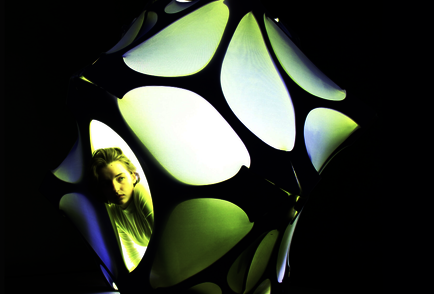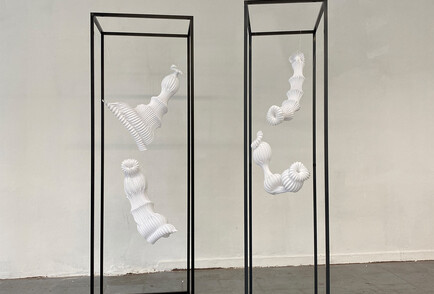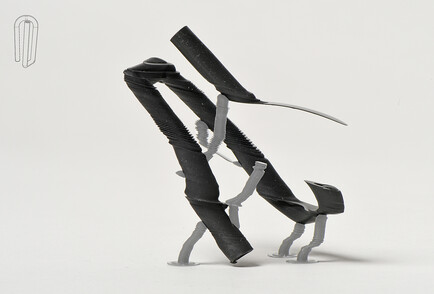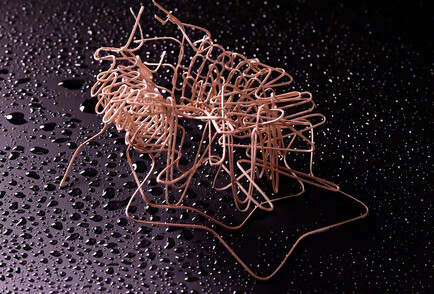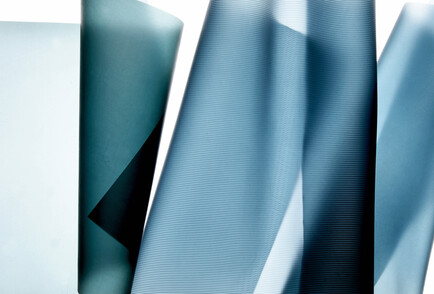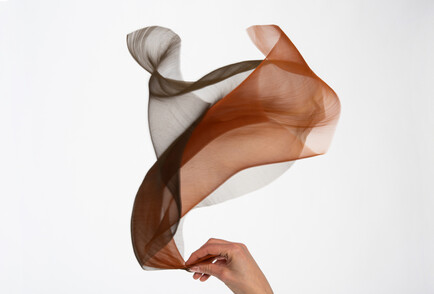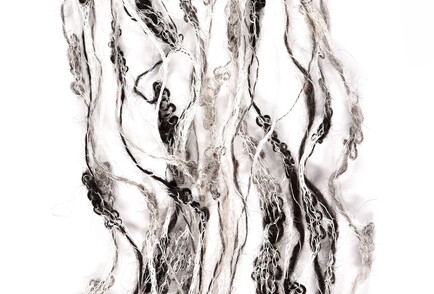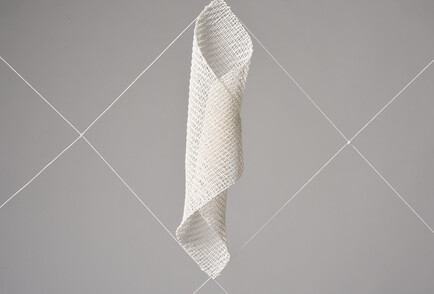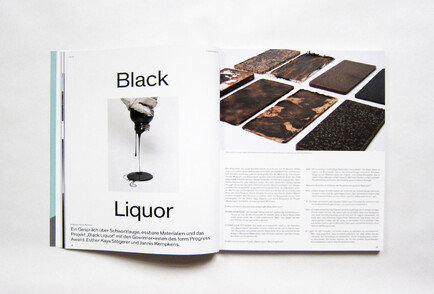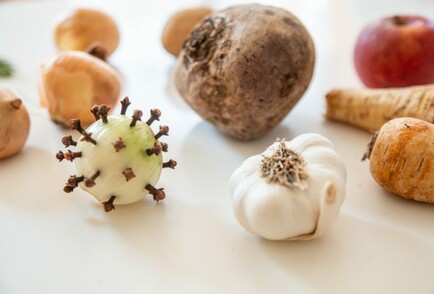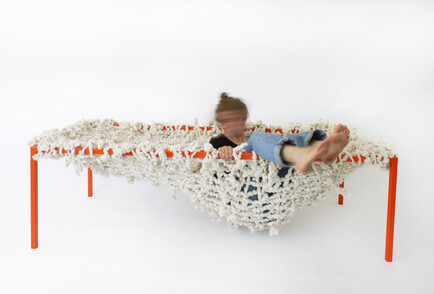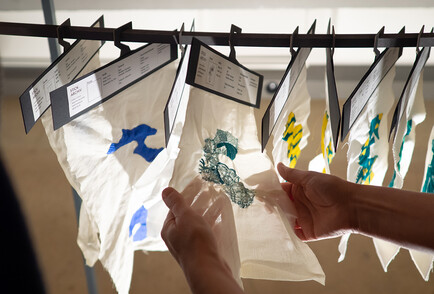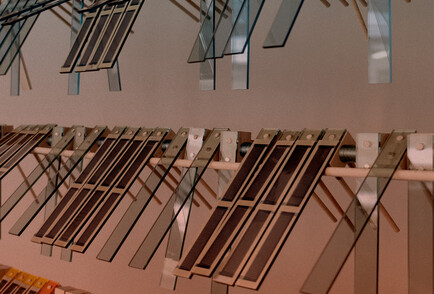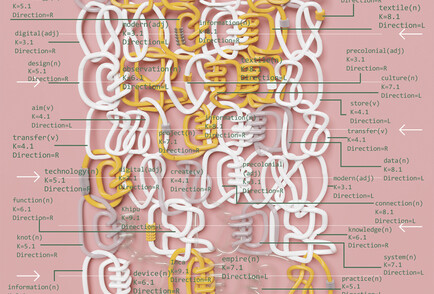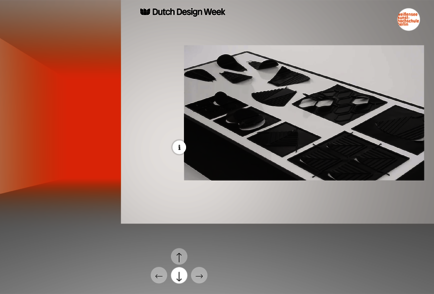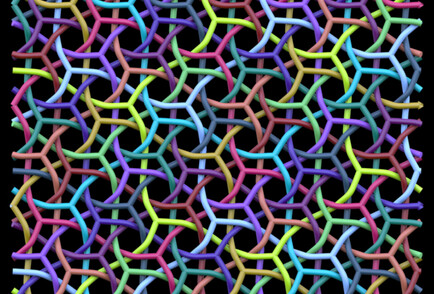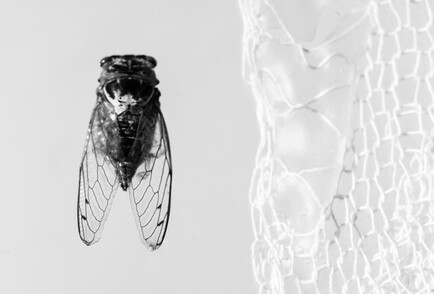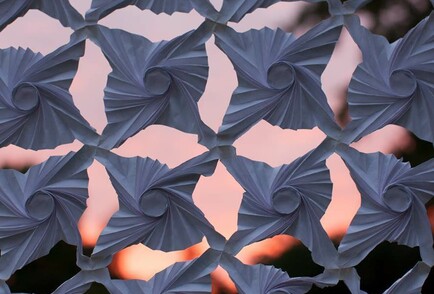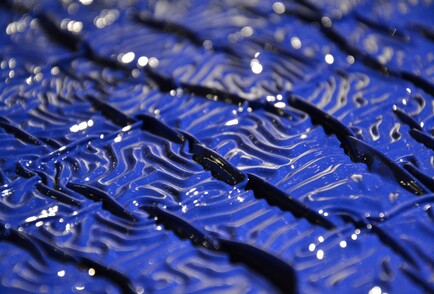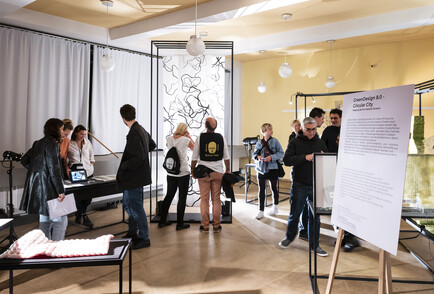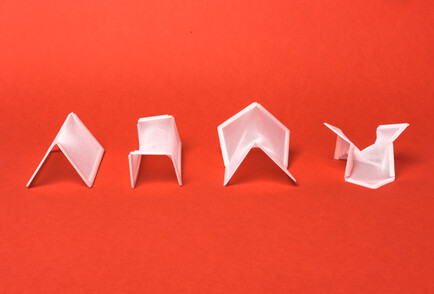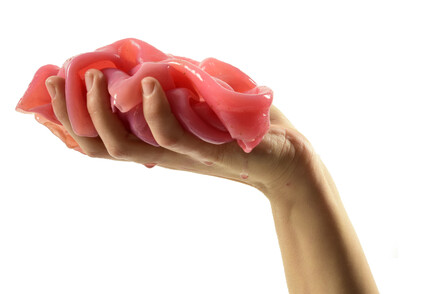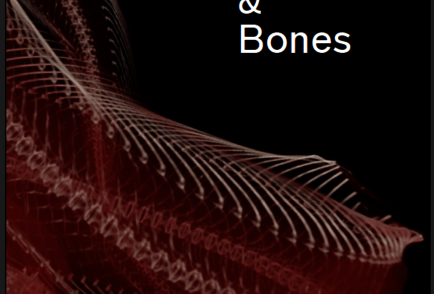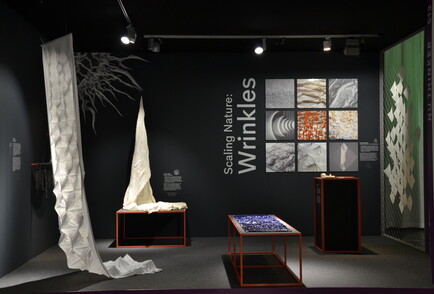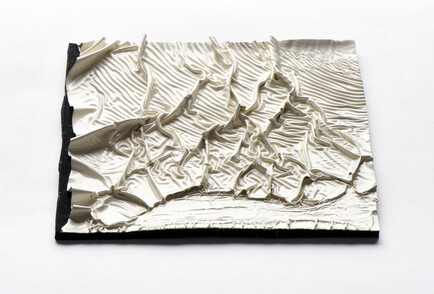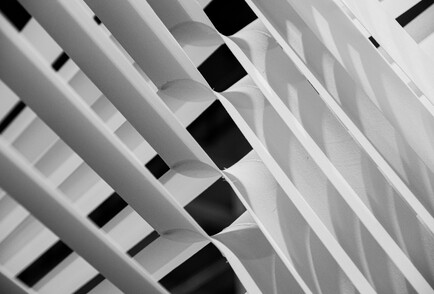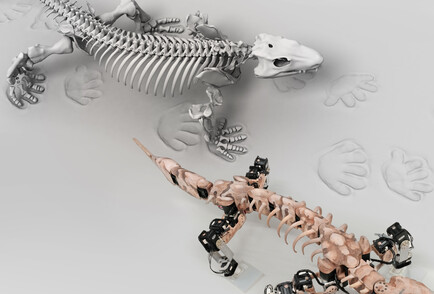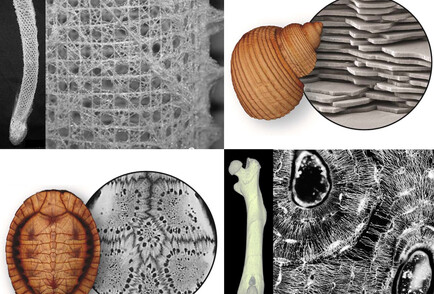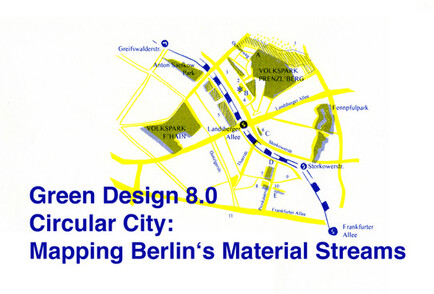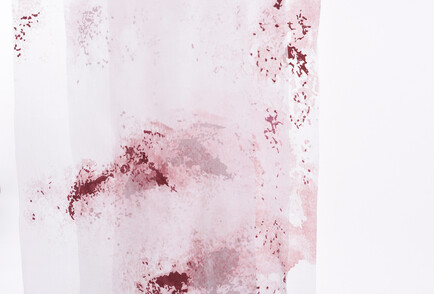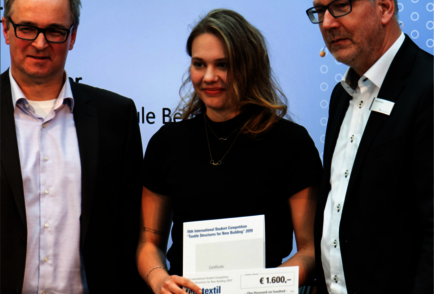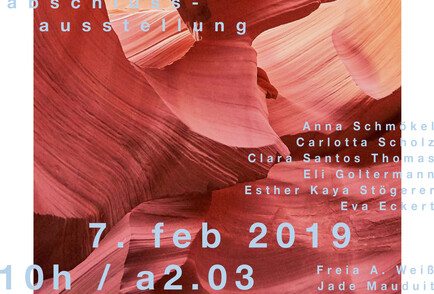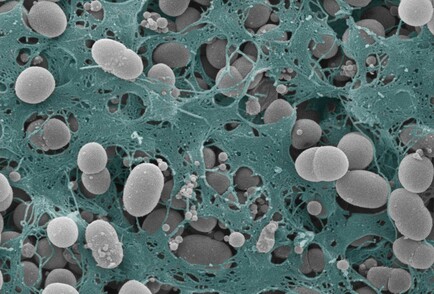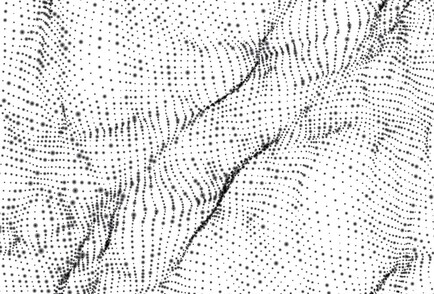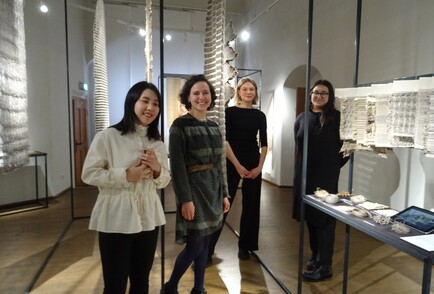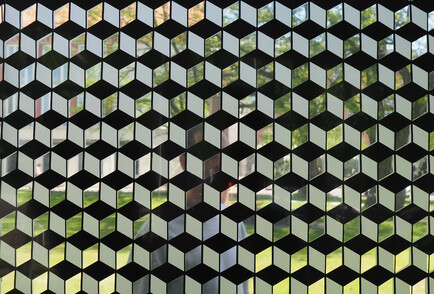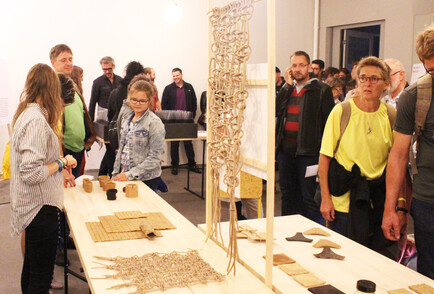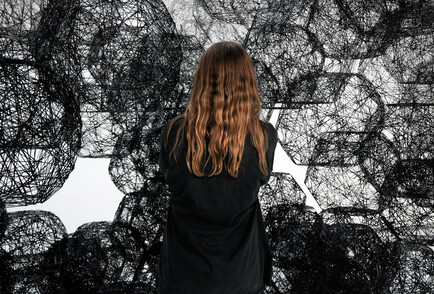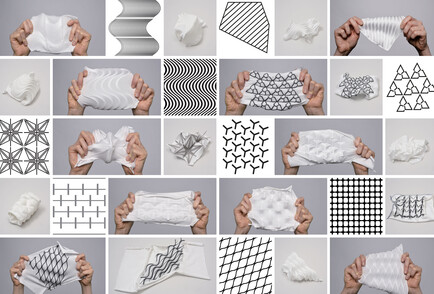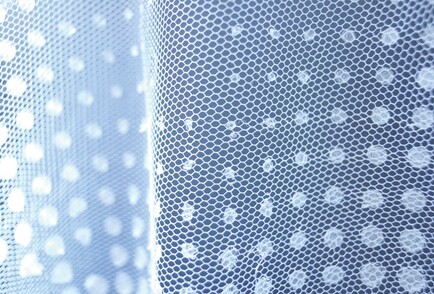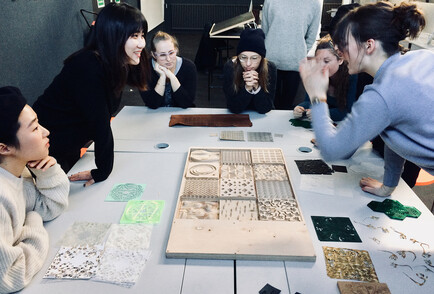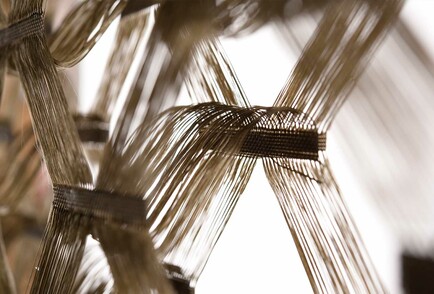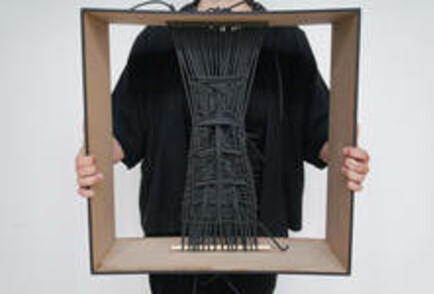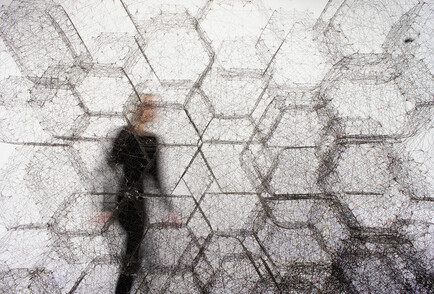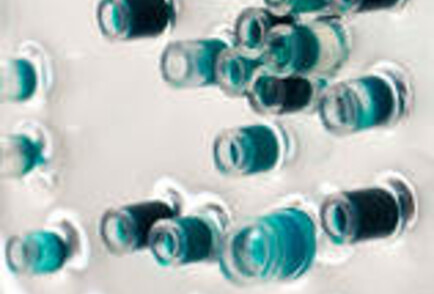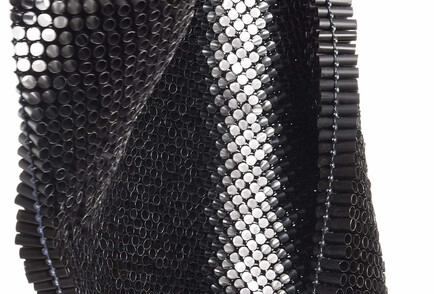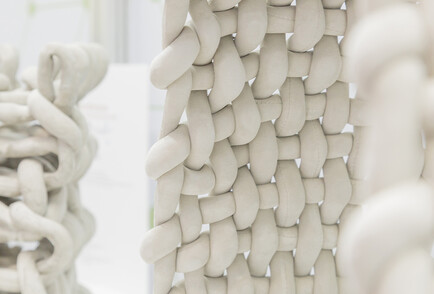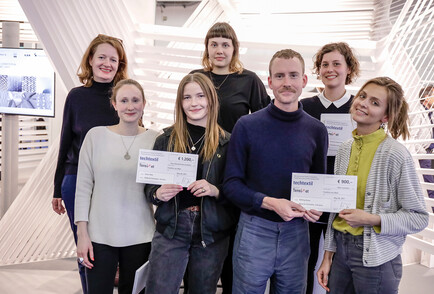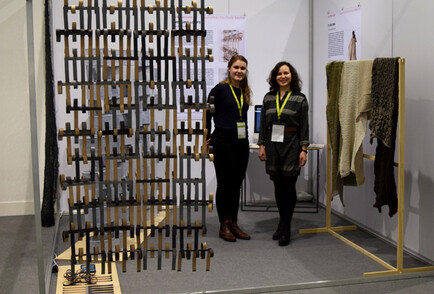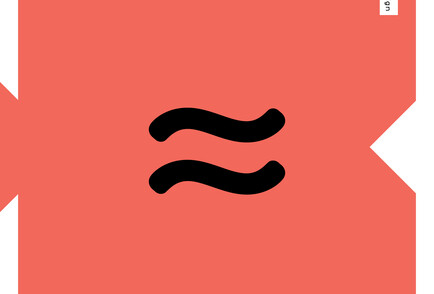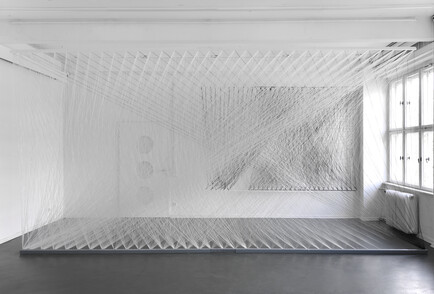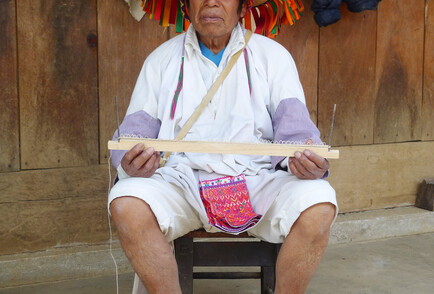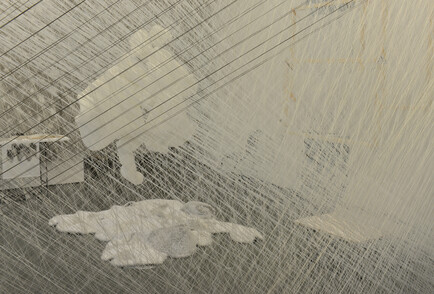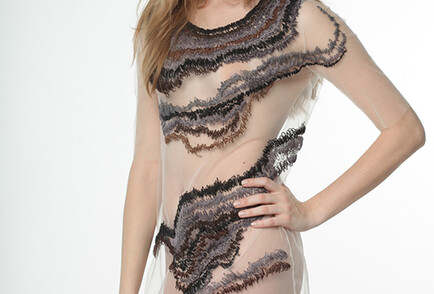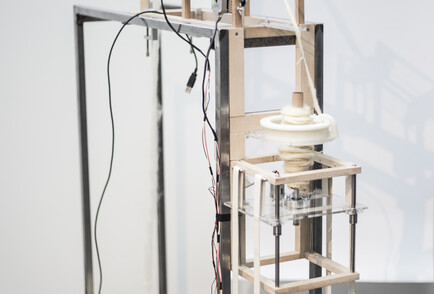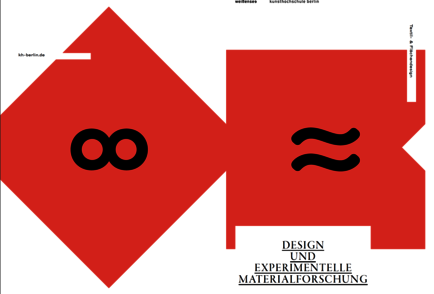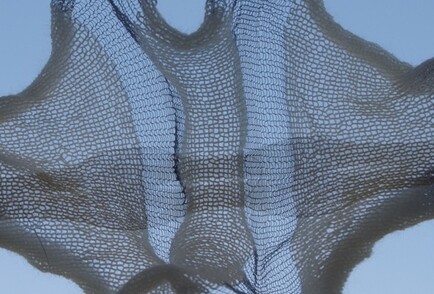BA/MA Textile and Material Design
Overview
In Summer Semester 2024, the Department changed its name to Textile- and Material-Design (formerly Textil- and Surface-Design). This strengthens the focus on the field of Material-Design, which represents a strong combination in connection with textiles, as many material innovations are based upon fiber-based, textile techniques. By developing new material concepts, we meet current and future ecological, economic and social challenges and open up a novel professional field for students. The Textile- and Material-Design studies consist of a four-year Bachelor's degree and a two-year Master's degree.
Textile- and Material-Design deals with both the constructive-technical and the aesthetic-sensual aspects of materials. The focus is increasingly on an expanded understanding of materials and their range of applications. By incorporating current technological, cultural and socio-economic issues, a field of reference is created that goes beyond classic Textile Design and combines traditional skills with contemporary tools and other disciplines in an application-oriented way.
Textiles and “New Materials” are regarded as leading future technologies against the background of ecological and social issues. Their development and design are becoming increasingly important and will open up new fields of activity for designers in the future. Aspects of sustainability, function and aesthetics play a central role in our teaching. Our alumni work in different contexts of practice, teaching or research - from large companies to founding their own start-ups.
Interdisciplinary learning and teaching at the intersection of design, technology and society is a central component of the program. There are interdisciplinary facilities at the university such as the greenlab - laboratory for sustainable design strategies and the eLab - laboratory for interactive technologies, in which current topics are being worked on jointly with students and specialists from other disciplines. The school`s workshops also play a central part in the design projects. An active international network of practitioners and academics is maintained by the department for disciplinary exchange and we run our own Design Research Group DXM - Design and Experimental Materials Research. Employees from the ongoing research projects are being actively involved in the teaching of BA and MA courses and enrich the discourse. Current positions from design practice are also regularly integrated into teaching through lectures, workshops and excursions.
> Instagram Textile- and Material-Design
Bachelor Program
At the beginning of the Bachelor's degree course, students from all degree courses complete a one-year interdisciplinary study of artistic fundamentals. In the following three years of study, the focus is on the design of textiles and materials in their various contexts, such as body, space or product. This can involve bodies, interior and exterior spaces, as well as surfaces and the nature of products. In addition to dealing with traditional and new technical possibilities in the design of textile and non-textile materials, the examination of disciplines such as fashion, product design, architecture, media, fine arts, etc. plays a major role.
Social and technological aspects are also taken into consideration. What contexts determine design work, what is the relationship between colors, materials and fabrics and contemporary and cultural environments, and how can economic, ecological, technical and sociological aspects be taken into account in design work?
The central components of the course are conception and design. Extensive creative, theoretical and practical knowledge, methods and skills are taught. A design approach is promoted that combines professionalism, critical thinking, transdisciplinary exchange, aesthetic autonomy and socio-cultural research.
Cooperation and research projects with partners from science and practice ensure an application-oriented education that is geared towards current issues. With the research focuses "Functional Surfaces in an Architectural Context", "Conceptual Design of Materials and Surfaces" and the establishment of a "Library for Social Textile Studies", the Department of Textile and Material Design aims to anchor creative, scientific and experimental material research in design at the School of Art in a long-term and sustainable manner. Through interdisciplinary cooperation with various technology and business partners, the realization of visionary, creatively sophisticated concepts is made possible.
> Info Application Bachelor Program
Master Program
The Master program in Textile -and Material-Design includes experimental material design and material research, as well as a reflective and aesthetically and technically contemporary application context. Topics include social textile design, bio-inspired design, soft technologies, future crafts, e-textiles, new materials, sustainable and circular design, adaptive surfaces and climatic concepts. They are linked to the fields of interior design, architecture, scenography, product and fashion design.
The special support of experimentation and a strong focus on profound socio-cultural research form the basis for the development of innovative, sustainable and future-oriented designs, concepts and perspectives on novel materiality. Within this realm, students reflect on the context and positioning of their work both on a scientific and aesthetic level and strengthen their attentiveness of contemporary socio-cultural topics.
In the 2-year Master program, the first year of study offers the opportunity to deepen individual skills in the areas of practice, design and theory. Students can choose modules to deepen their skills according to their own needs. An internship allows students to gain experience for their later career entry. The actual Master thesis is completed in the 2nd year of study. The first semester is dedicated to the development of the thesis proposal, including initial material studies and prototypes, while in the second semester the topics are explored in depth, with design practice and theoretical reflection going hand in hand. The Master program concludes with an exhibition-style presentation of the work and the production of a comprehensive documentation in image and text.
> Info Application Master Program
Research and Networks
The extensive research activities and networks of the Department of Textile and Material Design offer valuable opportunities for deepening knowledge and professional qualification during the course of study. All research focuses are closely networked with external partners from research and practice. Interdisciplinary cooperation with various institutions from industry and science enables the realistic implementation of innovative, sophisticated design concepts.
Our research area DXM - Design and Experimental Materials Research develops innovative ideas in the field of textile and material design into real products and applications. Graduates of the department are also frequently involved in design research here, professionally deepening their approaches from their studies as part of a research project.
The department is also actively involved in the research of the Cluster of Excellence Matters of Activity. Image Space Material at the Humboldt University of Berlin. Here, a new culture of material is being developed in transdisciplinary cooperation between the natural sciences, humanities and design. There is close cooperation with the Institute for Biomaterials, Max Planck Institute MPIKG, Potsdam.
DiGiTal is a cross-university programme to promote scientific and artistic creativity and research in the field of digitalization as part of the Berlin Programme for the Promotion of Equal Opportunities for Women in Research and Teaching (BCP).
In addition, there are long-term collaborations with leading textile institutes, including the Saxon Textile Research Institute STFI Chemnitz, the Institute of Textile Technology ITA at RWTH Aachen University, the material innovation network smart3, the competence network futureTEX and the Fraunhofer IZM, Berlin.
Teaching Staff
-
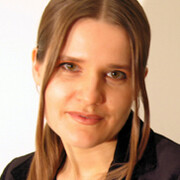
Prof. Dr. Zane Berzina
Konzeptionelle Gestaltung von Materialien und Oberflächen
→ Course Offerings →Room Number A2.02
Phone 030 / 47705 430
Email berzina(at)kh-berlin.de
Website http://www.zaneberzina.com
-

Prof. Nadine Göpfert
Professorin Textil- und Material-Design, Fachgebietssprecherin TMD
→ Course Offerings -
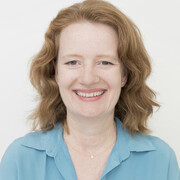
Prof. Christiane Sauer
Professorin für Material und Entwurf im räumlichen Kontext
→ Course Offerings →Room Number A 2.04
Phone 47705 281
Email sauer(at)kh-berlin.de
Website https://www.matters-of-activity.de/en/members/213/prof-christiane-sauer
-

Maja Avnat
Künstlerische Mitarbeiterin im Rahmen des Exzellenz-Clusters „Matters of Activity“
→ Course Offerings -

-

Kenny Garzon Valdes
Studentische Hilfskraft
-

Jacob Salomon
Studentische Hilfskraft
Forschungsmitarbeiter_innen
-
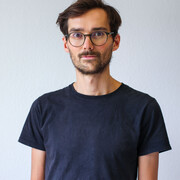
Jannis Kempkens
Künsterlischer Mitarbeiter Textil- und Material-Design, Forschungsprojekt LignoLight | DXM und greenlab
→ Course Offerings -

-

Honorarprofessor_innen
Studentische Hilfskräfte/Tutor*innen
-

Kenny Garzon Valdes
Studentische Hilfskraft
-

Jacob Salomon
Studentische Hilfskraft
